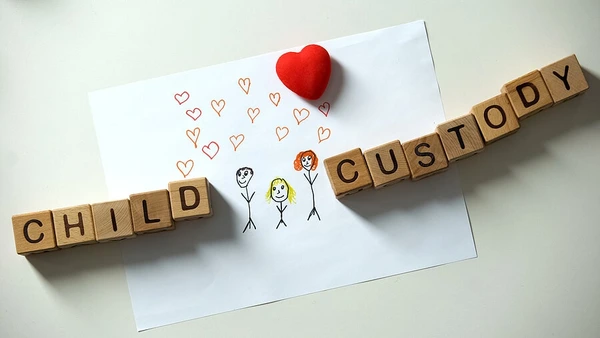Deciding to get a divorce never feels simple. However, there are ways that you and your ex-partner can make the process as easy as possible for your children.
When to get a divorce with kids
As with any divorce, you need to have been married for a year to divorce.
During this time, you can draft a legally binding separation agreement. This will be helpful in finalising your divorce down the line.
Child custody after separation
The main concern with children is often custody and childcare arrangements. If your separation is amicable, you can avoid court hearings by making a separation agreement.
This will cover where the children will live and how much time they get with each parent. You can choose to make this legally binding and include details like child maintenance.
You can also create a parenting plan so both parents are on the same page going forward.
If you can’t agree on elements of custody, you’ll need to talk to a mediator, who will try to enable you to find a compromise. You cannot apply for a court hearing without trying mediation first. The exception to this is in the cases of domestic abuse.
Finalising custody
Once you’ve agreed to the terms, a solicitor can help with a consent order. You will need to fill out the C100 court form to legalise a consent order. You’ll send the original form and 3 copies of the form, along with your consent order and you’ll need to pay a £215 court fee.
If a judge does not think the consent order is in the children’s best interest, they may change it, or make a different order altogether.
If you cannot agree, you can get support from local organisations. You can also discuss with your divorce solicitor if you want to resolve these issues outside of court. Otherwise, you can ask the court to decide on anything you can’t agree on.
Court orders can also cover specifics, like the child's religious upbringing, or type of education. You can apply for a ‘prohibited steps order’ to stop your spouse from making specific decisions.
How long does it take?
Finalising custody will take longer if you can’t agree. You’ll go through mediation, create a court order, and can go to multiple hearings until a judge decides on what’s best for your children.
The sooner you can agree and come to a compromise, the quicker it will be. This also means you won’t need your child to give a statement about who they would prefer to live with, which can be upsetting.
How to tell your children
No one wants to be the bearer of bad news, but it is best to be honest with your children about your separation. Knowing how your separation will progress and offering clear boundaries can help.
Knowing which partner will leave the property, where they'll be living and when the children will see this parent after they’ve left can help.
Agreeing boundaries and behaviours between you as parents will help children to feel more secure.
Reassure your children that you are still a family. that they will remain in a relationship with both parents and that their behaviour has had no impact on your relationship as a couple. Encourage them to share their feelings, even if it is uncomfortable for you.
How to help your children cope with divorce
It is always good to aim to be amicable with your spouse, even through separation. Though this can be difficult, especially as divorces can take a while to finalise, it’s important to try and remain neutral when it comes to children. Try not to drag your children into arguments or make them pass messages to your spouse. Children can feel obligated to pick sides and will want to keep everyone happy, which will put more pressure on them.
Agree to communicate with your spouse directly, without involving your children.
Further support
The Children and Family Court Advisory and Support Service (Cafcass) send an advisor to help during the hearing. They can also help you create a parenting plan.
The Centre for Separated Families has a wealth of information to help support you during your divorce. If there are concerns about your spouse seeing your children, you can make use of the National Association of Child Contact Centres.
Sorting Out Separation is another support service for those dealing with a relationship break down.




